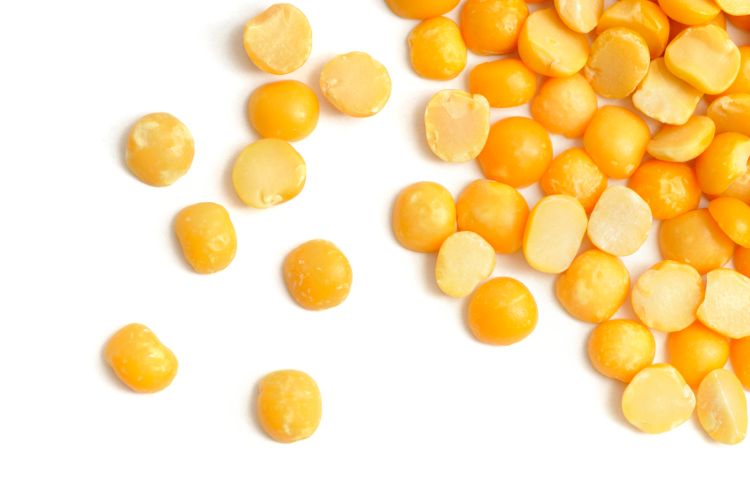Equinom achieves 75% protein content in exploratory minimally processed pea protein ingredient
Equinom has achieved this by breeding new varieties of yellow peas using its Manna technology platform, which identifies desirable traits for food applications in the genetic structure of seeds and predicts the best crossbreeding matches to yield better varieties without the use of genetic engineering.
Photo © iStockphoto.com/Alasdair Thomson

Equinom (Indianapolis, IN) has announced that it has achieved a record 75% protein in an exploratory minimally processed pea protein ingredient. This breaks the company’s previous record of 70%, which is currently ready of commercialization. Equinom has achieved this by breeding new varieties of yellow peas using its Manna technology platform, which identifies desirable traits for food applications in the genetic structure of seeds and predicts the best crossbreeding matches to yield better varieties without the use of genetic engineering.
The high protein content of Equinom Pea Protein allows the product to deliver the desirable qualities of both pea protein isolates and pea protein concentrates. For example, Equinom Pea Protein has the emulsification, foaming and gelation of pea protein isolates, and the high solubility and light color of a concentrate. Its minimal processing offers lower production costs and sustainability. According to Equinom, unlike other protein isolates on the market Equinom Pea Protein is high in fiber, and lower in sodium. More advancements must be made to produce this level of protein at commercial scale.
For this in-house trial, Equinom utilized only dry fractionation, in contrast to wet fractionation used to make commercially available pea protein. Dry fractionation, says Equinom, is more sustainable and cost-effective, using only milling and air to separate protein from the pea.
“We’re proud of this significant achievement with our pea protein and are truly excited by the possibilities our innovative approach can unlock for food companies and consumers of plant-based foods,” said Sigal Meirovitch, senior director of Protein Research & Development at Equinom, in a press release. “As the need for heavy processing of pea protein is a major bottleneck for the sustainability and affordability of plant-based foods, we see this scientific discovery as a real game changer for the industry.”
HHS announces restructuring plans to consolidate divisions and downsize workforce
Published: March 27th 2025 | Updated: March 27th 2025According to the announcement, the restructuring will save taxpayers $1.8 billion per year by reducing the workforce by 10,000 full-time employees and consolidating the department’s 28 divisions into 15 new divisions.










